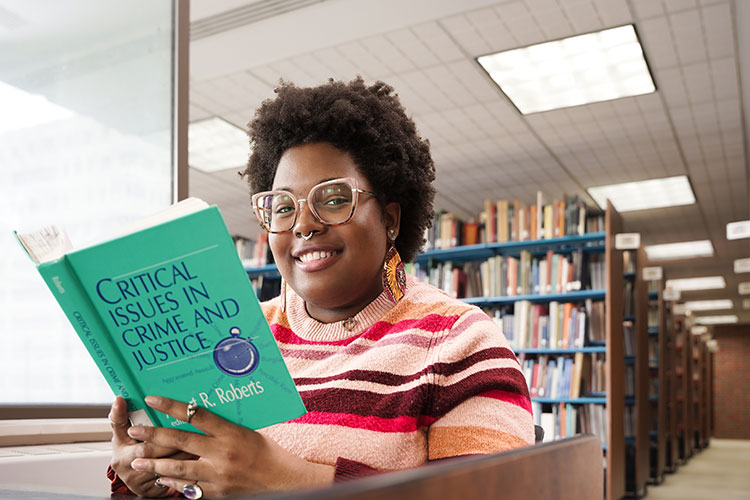Amillia Heredia chose UWM out of the five colleges she applied to because she felt it had the most potential for acknowledging and seeing her identity as a Black woman and first-generation student.
Heredia, who graduated from Helen Bader School of Social Welfare’s accelerated master’s degree program in criminal justice and criminology, was featured in UWM’s May 21 graduation video.
Heredia looked for a university that would support her as a first-generation student interested in issues of diversity. When she found the Inclusive Excellence Center, she was encouraged to take more of a leadership role and advocate for other students. That led to student government and two terms as president of the student association.
“I’ll be honest that I never really wanted to really take a leadership role, but getting onto campus and being introduced to the Inclusive Excellence Center really encouraged me to be forward thinking and advocate for other students that share the same identities.” She also served as vice president for the Black Graduate Student Association and as lead for the equity team housed in the Honors College.
UWM’s diversity appealed to her, but she had mixed feelings about how to create a stronger anti-racist climate on campus, she said.
“There’s diversity as far as numbers. Milwaukee is very ‘folks-of-color-centric’ so you’re going to have lots of people of color coming onto campus.” But she added the university needs to do more to celebrate different identities and “make sure that those identities are seen holistically in and outside of the classroom. UWM has a lot of space to grow.”
She chose criminal justice as a major “because I believe it’s important to understand the systems that are generating inequalities and disproportionate results in order to make equitable and effective change and reform.”
The major, she added, was “sort of love at first sight. I took one introduction class my second semester as a first-year student and it was like a light bulb went off. I actually entered the university with a bachelor’s in sociology in mind, but switched it to criminal justice because I realized that it’s the field I wanted to operate in to make change.”
Her work in criminology and criminal justice has helped her explore on a micro and macro level issues like criminal justice reform, sexual violence and critical thinking about the foundation of the justice system and the way it works in our society and different societies around the world.
“I appreciated having this very macro view of how criminal justice impacts the folks going through the system, but also the folks that are kind of observing and interacting with it on a lesser level.”
One of her favorite memories of her time at UWM was organizing an undergraduate conference on race, justice and power, she said. That event looked beyond speakers and protest marches and got students talking about what they’ve observed and encouraging them to practice anti-racism.
“It made me feel really proud of the work I have done pushing a culture of anti-racism, but also putting together such a well-received event that folks were really engaged in.”
